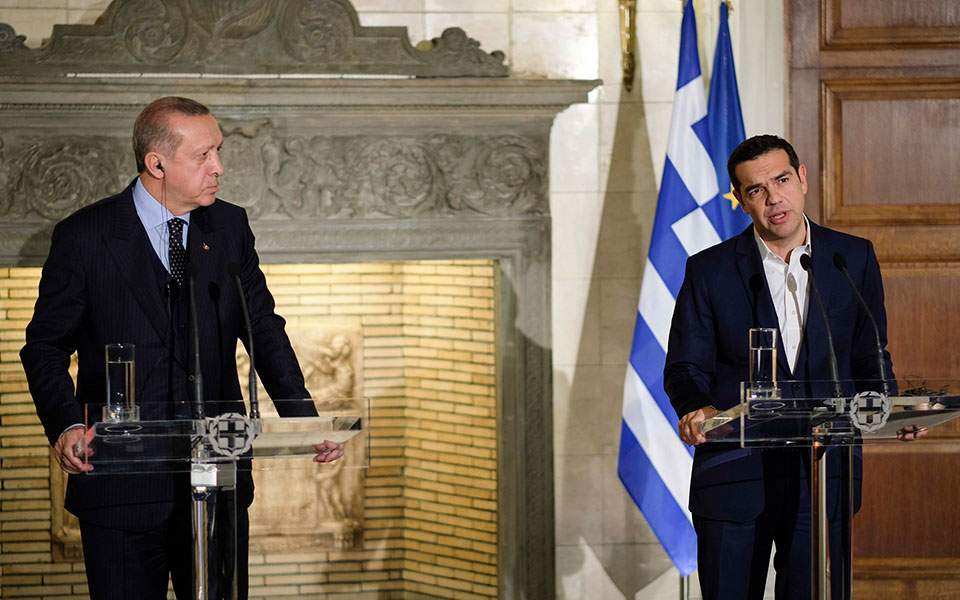Greece calls Turkey a ‘violator of international law’ following Aegean warnings

In response to warnings this week from Turkey that it will take all necessary measures to protect its interests in the Aegean and the Eastern Mediterranean from supposed unilateral Greek actions, Athens described Ankara as a “violator” of international law.
“The delimitation of Greece’s exclusive economic zone, in its totality, shall be determined on the basis of international law and certainly not by taking into account nonexistent and arbitrary theories adopted by Turkey, a violator of international law,” the Greek Foreign Ministry said in a statement Thursday.
“We call upon our neighbor Turkey to act with due seriousness and commitment to the principles of international law and the Charter of the United Nations,” it added.
Turkey issued its warnings to Greece via the country’s Defense Minister Hulusi Akar in the wake of comments made last week by former foreign minister Nikos Kotzias, who claimed Greece was ready to extend its western maritime borders from 6 to 12 nautical miles.
Ankara resumed the rhetoric Thursday, with Akar urging Greece to uphold international treaties and to move ahead with the demilitarization of the eastern Aegean islands.
Referring to the issue of demilitarization, the Foreign Ministry in Athens said, “The well-known positions of Greece stem exclusively from international law and the UN Charter and leave no room for doubt.”
It added that Greece will not be “drawn into an exchange in aggressive rhetoric.”
Akar said this week that Turkey has maps and photographic material which, in its view, show that Greece’s actions in the Aegean – sometimes with the backing of European and other Western powers – go against the interests of Turkey. The Turkish official called on Greece to desist from “provocations” and to respect international law.
Commenting on the Turkish assertions, Alternate Defense Minister Panagiotis Rigas said that Greece is pursuing a low-key policy in order to keep lines of communication between the two countries open.





